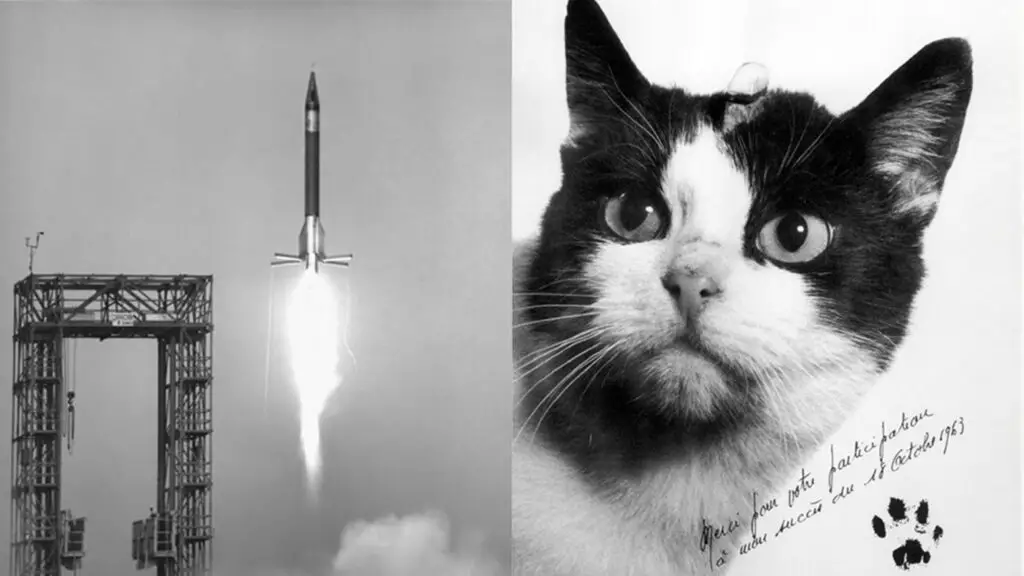It’s well known that dogs, monkeys, and chimps made their way into space, which paved the way for humans to do the same. But did you there know once was a cat that did the same?
A French cat named Félicette, once a stray on the streets of Paris, was in a group of 14 cats chosen by the French space program to be a part of their spaceflight testing. The cats were going to be used to study if animals could survive the lack of gravity, which would help determine if humans could survive it too.
They all underwent training in a centrifuge, the same machine that spins astronauts and pilots to expose them to high G-forces. They also had an invasive procedure where scientists implanted electrodes in their brains and other areas of their bodies so they could study and monitor the cats’ neurological functions, breathing, and heart rate.
Félicette was picked out of that group, reportedly because of her calm disposition. She became an important test subject for the French space program as it became the world’s third civilian space agency behind the United States and the Soviet Union. Félicette’s launch was a significant step for the French space program because they had only previously sent rats into space.
Félicette, who was designated as C341, launched into space from the Sahara desert on October 18, 1963, the one and only cat to make that journey. She flew on a Véronique AG1 rocket, traveling almost 100 miles (157 km) above the earth at up to six times the speed of sound on a suborbital mission. The cat experienced 9.5 Gs and was weightless for a brief time before returning safely to the ground. She survived her 15-minute spaceflight, and Félicette came out of it unscathed. A few months later, however, scientists euthanized her so they could study and examine her brain.
Unfortunately, Félicette’s contribution to the study of space was mostly forgotten in the history of space exploration. Other notable animals that had done the same trip had been honored, such as Ham the chimpanzee, whose partial remains were sent to the International Space Hall of Fame, and Laika the dog, who had two different monuments constructed to honor her.
There was an effort to eulogize her through a series of postage stamps, but they mislabeled her as another male cat in the program named Felix. It wasn’t until 2017 when a Kickstarter campaign started by Matthew Serge Guy thrust the space cat back into the news. He wanted to get Félicette the recognition she deserved. On December 18, 2019, a five-foot-tall bronze statue of Félicette was unveiled at the International Space University in Strasbourg, France, honoring her contribution to the quest to put humans safely into space.
Sources: Space.com, Smithsonian Magazine, The Mirror, CNES


